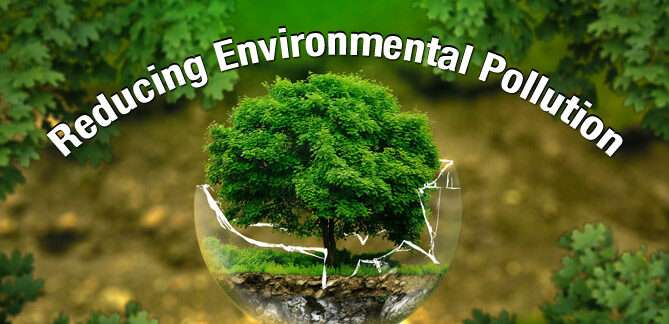How to reduce Pollution Reducing pollution is crucial for preserving our environment and improving public health. By adopting cleaner energy sources like solar and wind power, promoting sustainable transportation such as biking and electric vehicles, and enforcing strict industrial emissions regulations, we can significantly curb pollution levels. Additionally, reducing single-use plastics and promoting recycling programs can help minimize waste that pollutes our oceans and landscapes. These steps, along with raising awareness and advocating for environmentally friendly policies, are essential in combating pollution and creating a healthier planet for future generations.

Effects of Pollution
- Air Pollution:
- Health Impacts: Respiratory diseases like asthma and lung cancer.
- Environmental Impact: Acid rain, ozone depletion.
2. Water Pollution:
- Health Risks: Contaminated drinking water leads to diseases like cholera.
- Ecosystem Damage: Marine life affected by pollutants like plastic and chemicals.
3. Soil Pollution:
- Reduced Fertility: Chemical pollutants degrade soil quality.
- Crop Contamination: Harmful substances affect food safety and agricultural productivity.
4. Noise Pollution:
- Health Effects: Hearing loss, stress-related illnesses.
- Quality of Life: Disruption of sleep patterns and communication.
5. Light Pollution:
- Ecological Impact: Disrupts wildlife behavior and migration patterns.
- Human Health: Disruption of sleep cycles and circadian rhythms.
6. Thermal Pollution:
- Aquatic Ecosystems: Alters water temperature, affecting aquatic life.
- Energy Consumption: Increased energy usage for cooling purposes.
7. Visual Pollution:
- Aesthetic Impact: Scenic beauty and urban landscapes are affected by clutter and visual distractions.
Strategies to Reduce Pollution
- Promote Renewable Energy: Transition to solar, wind, and hydroelectric power to reduce reliance on fossil fuels.
- Improve Public Transportation: Invest in efficient and accessible public transport systems to reduce car emissions.
- Enhance Industrial Processes: Adopt cleaner production technologies and stringent emission standards in industries.
- Implement Waste Management: Encourage recycling and proper disposal of waste to minimize landfill and ocean pollution.
- Reduce Use of Plastics: Promote alternatives to single-use plastics and encourage recycling initiatives.
- Protect Water Sources: Prevent industrial and agricultural runoff from contaminating freshwater bodies.
- Advocate for Green Practices: Educate communities and businesses about sustainable practices and eco-friendly lifestyles.
- Enforce Environmental Laws: Strengthen enforcement of regulations against pollution and hold polluters accountable.
- Support Afforestation: Plant trees to absorb carbon dioxide and improve air quality in urban areas.
- Foster International Cooperation: Collaborate globally on climate agreements and initiatives to tackle cross-border pollution challenges.
Government Policies and Regulations
- Definition and Purpose:
- Government policies and regulations refer to rules, laws, and guidelines set by governmental bodies to govern various aspects of society, economy, and public life.
- Their primary purpose is to ensure order, safety, fairness, and to promote specific societal goals such as economic growth, public health, environmental protection, etc.
2. Types of Policies:
- Social Policies: Address issues like healthcare, education, welfare, and housing.
- Economic Policies: Cover fiscal and monetary measures, trade policies, industrial regulations.
- Environmental Policies: Aimed at protecting natural resources, reducing pollution, and promoting sustainable practices.
- Regulatory Policies: Govern industries, professions, and activities to ensure compliance with standards and safety measures.
3. Development Process:
- Policies are formulated through research, consultation with experts, public feedback, and legislative processes.
- They are often influenced by political ideologies, public opinion, and international agreements.
4. Implementation and Enforcement:
- Once approved, policies are implemented by relevant government agencies or departments.
- Enforcement involves monitoring compliance, issuing permits, inspections, and penalties for violations.
5. Impact and Evaluation:
- Policies can have wide-ranging impacts on individuals, businesses, and society.
- Evaluation assesses effectiveness, efficiency, and equity, often leading to adjustments or reforms.
6. Challenges and Controversies:
- Balancing competing interests and stakeholder demands.
- Economic impacts, bureaucratic inefficiencies, and unintended consequences.
- Public resistance or criticism due to perceived unfairness or overreach.
7. Role of Technology:
Technology influences policy development, enforcement (e.g., digital governance, data privacy laws), and public engagement (e.g., e-governance platforms).
8. Global Perspectives:
- Policies vary widely across countries due to cultural, economic, and political differences.
- International organizations play a role in harmonizing standards and norms through treaties and agreements.
Conclusion
Government How to reduce Pollution policies and regulations are indispensable tools that shape societies, economies, and environments worldwide. Defined by their purpose to maintain order, promote fairness, and achieve specific societal goals, these policies span diverse areas such as social welfare, economic stability, environmental sustainability, and regulatory oversight. The development of these policies involves rigorous processes of research, consultation, and legislative scrutiny, influenced by political ideologies and public feedback. Once implemented, they are enforced through mechanisms that ensure compliance and address violations, aiming to balance public interest with regulatory efficiency.
FAQs
Q: 1What are some everyday actions individuals can take to reduce pollution?
Ans:: Use energy-efficient appliances, carpool or use public transport, and reduce plastic waste through recycling.
Q: 2How can industries and businesses contribute to reducing pollution?
Ans: Implement emission reduction technologies, adopt sustainable practices, and comply with environmental regulations.
Q:3 What role does government policy play in reducing pollution?
Ans: Enforce strict emission standards, incentivize clean technologies, and promote public awareness and participation.
Q: 4How does agriculture contribute to pollution, and how can it be minimized?
Ans: Agriculture impacts water and air quality; reducing chemical use and adopting sustainable farming practices can mitigate pollution.






